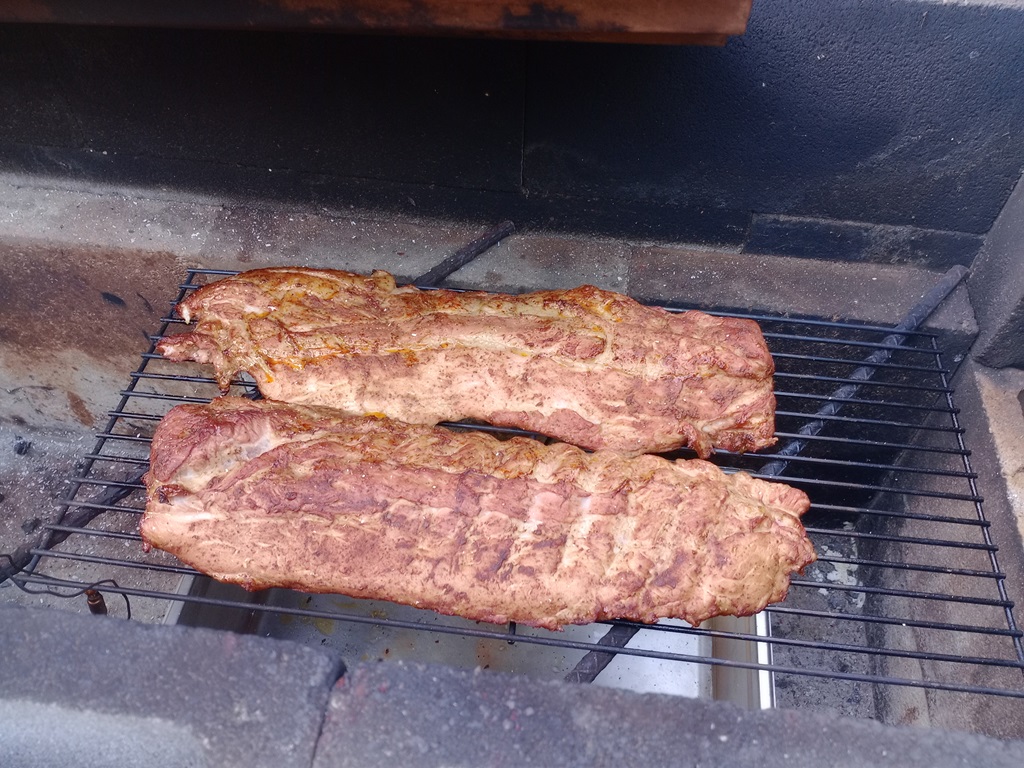In my dev OpenSearch 2.x environment, I get a strange error indicating that the application cannot read the cacerts file — except the file is world readable, selinux is disabled, and there’s nothing actually preventing access from the OS level.
[2024-09-17T12:48:52,666][ERROR][c.a.d.a.h.j.AbstractHTTPJwtAuthenticator] [linux1569.mgmt.windstream.net] Error creating JWT authenticator. JWT authentication will not work
com.amazon.dlic.util.SettingsBasedSSLConfigurator$SSLConfigException: Error loading trust store from /opt/elk/opensearch/jdk/lib/security/cacerts
at com.amazon.dlic.util.SettingsBasedSSLConfigurator.initFromKeyStore(SettingsBasedSSLConfigurator.java:338) ~[opensearch-security-2.15.0.0.jar:2.15.0.0]
at com.amazon.dlic.util.SettingsBasedSSLConfigurator.configureWithSettings(SettingsBasedSSLConfigurator.java:196) ~[opensearch-security-2.15.0.0.jar:2.15.0.0]
at com.amazon.dlic.util.SettingsBasedSSLConfigurator.buildSSLContext(SettingsBasedSSLConfigurator.java:117) ~[opensearch-security-2.15.0.0.jar:2.15.0.0]
at com.amazon.dlic.util.SettingsBasedSSLConfigurator.buildSSLConfig(SettingsBasedSSLConfigurator.java:131) ~[opensearch-security-2.15.0.0.jar:2.15.0.0]
at com.amazon.dlic.auth.http.jwt.keybyoidc.HTTPJwtKeyByOpenIdConnectAuthenticator.getSSLConfig(HTTPJwtKeyByOpenIdConnectAuthenticator.java:65) ~[opensearch-security-2.15.0.0.jar:2.15.0.0]
at com.amazon.dlic.auth.http.jwt.keybyoidc.HTTPJwtKeyByOpenIdConnectAuthenticator.initKeyProvider(HTTPJwtKeyByOpenIdConnectAuthenticator.java:47) ~[opensearch-security-2.15.0.0.jar:2.15.0.0]
at com.amazon.dlic.auth.http.jwt.AbstractHTTPJwtAuthenticator.<init>(AbstractHTTPJwtAuthenticator.java:89) [opensearch-security-2.15.0.0.jar:2.15.0.0]
at com.amazon.dlic.auth.http.jwt.keybyoidc.HTTPJwtKeyByOpenIdConnectAuthenticator.<init>(HTTPJwtKeyByOpenIdConnectAuthenticator.java:26) [opensearch-security-2.15.0.0.jar:2.15.0.0]
at java.base/jdk.internal.reflect.DirectConstructorHandleAccessor.newInstance(DirectConstructorHandleAccessor.java:62) ~[?:?]
at java.base/java.lang.reflect.Constructor.newInstanceWithCaller(Constructor.java:502) ~[?:?]
at java.base/java.lang.reflect.Constructor.newInstance(Constructor.java:486) ~[?:?]
at org.opensearch.security.support.ReflectionHelper.instantiateAAA(ReflectionHelper.java:62) [opensearch-security-2.15.0.0.jar:2.15.0.0]
at org.opensearch.security.securityconf.DynamicConfigModelV7.lambda$newInstance$1(DynamicConfigModelV7.java:432) [opensearch-security-2.15.0.0.jar:2.15.0.0]
at java.base/java.security.AccessController.doPrivileged(AccessController.java:319) [?:?]
at org.opensearch.security.securityconf.DynamicConfigModelV7.newInstance(DynamicConfigModelV7.java:430) [opensearch-security-2.15.0.0.jar:2.15.0.0]
at org.opensearch.security.securityconf.DynamicConfigModelV7.buildAAA(DynamicConfigModelV7.java:329) [opensearch-security-2.15.0.0.jar:2.15.0.0]
at org.opensearch.security.securityconf.DynamicConfigModelV7.<init>(DynamicConfigModelV7.java:102) [opensearch-security-2.15.0.0.jar:2.15.0.0]
at org.opensearch.security.securityconf.DynamicConfigFactory.onChange(DynamicConfigFactory.java:288) [opensearch-security-2.15.0.0.jar:2.15.0.0]
at org.opensearch.security.configuration.ConfigurationRepository.notifyAboutChanges(ConfigurationRepository.java:570) [opensearch-security-2.15.0.0.jar:2.15.0.0]
at org.opensearch.security.configuration.ConfigurationRepository.notifyConfigurationListeners(ConfigurationRepository.java:559) [opensearch-security-2.15.0.0.jar:2.15.0.0]
at org.opensearch.security.configuration.ConfigurationRepository.reloadConfiguration0(ConfigurationRepository.java:554) [opensearch-security-2.15.0.0.jar:2.15.0.0]
at org.opensearch.security.configuration.ConfigurationRepository.loadConfigurationWithLock(ConfigurationRepository.java:538) [opensearch-security-2.15.0.0.jar:2.15.0.0]
at org.opensearch.security.configuration.ConfigurationRepository.reloadConfiguration(ConfigurationRepository.java:531) [opensearch-security-2.15.0.0.jar:2.15.0.0]
at org.opensearch.security.configuration.ConfigurationRepository.initalizeClusterConfiguration(ConfigurationRepository.java:284) [opensearch-security-2.15.0.0.jar:2.15.0.0]
at org.opensearch.security.configuration.ConfigurationRepository.lambda$initOnNodeStart$10(ConfigurationRepository.java:439) [opensearch-security-2.15.0.0.jar:2.15.0.0]
at java.base/java.lang.Thread.run(Thread.java:1583) [?:?]
Caused by: java.security.AccessControlException: access denied ("java.io.FilePermission" "/opt/elk/opensearch/jdk/lib/security/cacerts" "read")
at java.base/java.security.AccessControlContext.checkPermission(AccessControlContext.java:488) ~[?:?]
at java.base/java.security.AccessController.checkPermission(AccessController.java:1071) ~[?:?]
at java.base/java.lang.SecurityManager.checkPermission(SecurityManager.java:411) ~[?:?]
at java.base/java.lang.SecurityManager.checkRead(SecurityManager.java:742) ~[?:?]
at java.base/sun.nio.fs.UnixPath.checkRead(UnixPath.java:789) ~[?:?]
at java.base/sun.nio.fs.UnixFileAttributeViews$Basic.readAttributes(UnixFileAttributeViews.java:49) ~[?:?]
at java.base/sun.nio.fs.UnixFileSystemProvider.readAttributes(UnixFileSystemProvider.java:171) ~[?:?]
at java.base/sun.nio.fs.LinuxFileSystemProvider.readAttributes(LinuxFileSystemProvider.java:99) ~[?:?]
at java.base/java.nio.file.spi.FileSystemProvider.readAttributesIfExists(FileSystemProvider.java:1270) ~[?:?]
at java.base/sun.nio.fs.UnixFileSystemProvider.readAttributesIfExists(UnixFileSystemProvider.java:191) ~[?:?]
at java.base/java.nio.file.Files.isDirectory(Files.java:2319) ~[?:?]
at org.opensearch.security.support.PemKeyReader.checkPath(PemKeyReader.java:214) ~[opensearch-security-2.15.0.0.jar:2.15.0.0]
at org.opensearch.security.support.PemKeyReader.resolve(PemKeyReader.java:290) ~[opensearch-security-2.15.0.0.jar:2.15.0.0]
at org.opensearch.security.support.PemKeyReader.resolve(PemKeyReader.java:276) ~[opensearch-security-2.15.0.0.jar:2.15.0.0]
at com.amazon.dlic.util.SettingsBasedSSLConfigurator.initFromKeyStore(SettingsBasedSSLConfigurator.java:327) ~[opensearch-security-2.15.0.0.jar:2.15.0.0]
... 25 more
Looks like Java has its own security mechanism — the java.policy needed to be updated to allow read access to cacerts (why!?!?!?)
vi /opt/elk/opensearch/jdk/conf/security/java.policy
# Add this grant:
permission java.io.FilePermission "/opt/elk/opensearch/jdk/lib/security/cacerts", "read";





